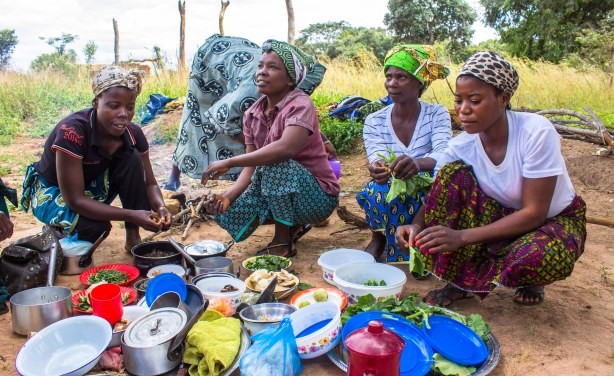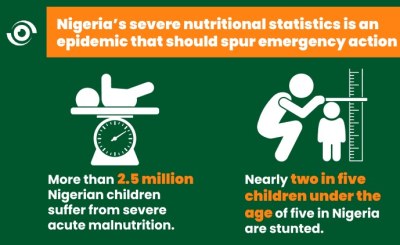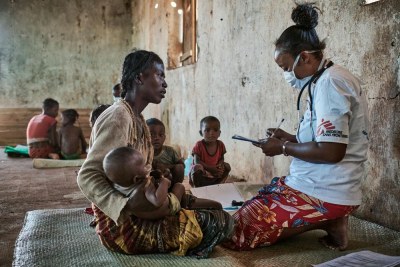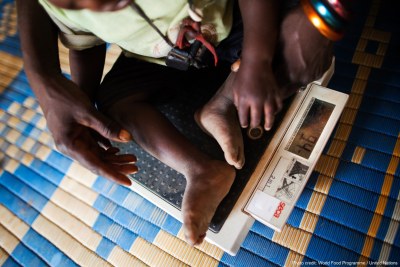-
Africa: Why Culture is Key in Tackling Malnutrition
SciDev.Net, 29 June 2021
Consider culture when making radical dietary changes to aid food supply amid climate change, argues Mercy Lung'aho. Read more »
-
Nigeria: MSF Focal Persons Provide Nutrition Services to Children in Borno State's Hard-to-Reach Areas
Nigeria Health Watch, 29 June 2021
The growing insurgency in Northeast Nigeria is negatively impacting the lives and health care of residents in the region, particularly mothers and their infants, who lack adequate… Read more »
-
Africa: A Pandemic of Malnutrition Calls for New Food Policies in Africa
Thomson Reuters Foundation, 27 November 2020
Policy, aid, and private investments should go towards growing nutritious crops that are adapted to climate extremes Read more »
-
Rwanda: How Rwandan Communities Are Tackling Malnutrition
New Times, 9 June 2021
Five months ago, Jeanne Nyiramuhire enrolled her two-and-a-half-year-old daughter at an Early Childhood Development (ECD) centre in Gahondo cell located in Nyanza District. Read more »
Why Culture is Key in Tackling Malnutrition in Africa
To protect our food supply and prevent malnutrition in the face of climate change, the degradation of our planet, and diseases such as Covid-19, researchers from Israel and the United Kingdom have released a new report detailing how we need "radical changes to the food system". The report urges radical dietary changes to help prevent malnutrition amid climate change but such changes would need to consider culture and affordability.
In many African countries such as Ethiopia, Ghana, Malawi, and Tanzania, many low-income families struggle to afford healthy diets, even in their cheapest form. In some cultures, men eat before women and children. And boys may eat before girls. But if women cook, serve food to the men and children first, and get to eat at the end when everyone else has had their fill, not everyone benefits equally.
In Western Kenya, certain foods such as chicken gizzard are forbidden for women as they are reserved for men. In Sub-Saharan Africa, pregnant women are forbidden from eating protein-rich foods such as eggs and snails for several reasons including the fear that the child may develop bad habits. Consider culture when making radical dietary changes to aid food supply amid climate change, writes Mercy Lung'aho for SciDev.Net.
InFocus
-
Persistent drought in southern Madagascar has left hundreds of thousands of people on the brink of famine and stoked acute malnutrition among children, the United Nations World ... Read more »
-
allAfrica's Nontobeko Mlambo spoke with Jane Battersby, an Associate Professor at the University of Cape Town's African Centre for Cities, on the need to address malnutrition in ... Read more »

At a food fair in Luwingu, Zambia women display items they regularly forage and cultivate. Forest foods are diverse and nutrient-rich (file photo).




